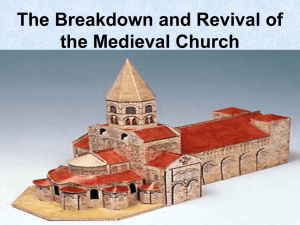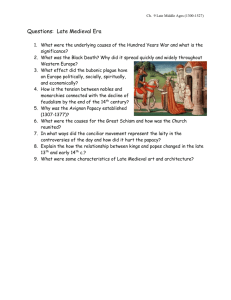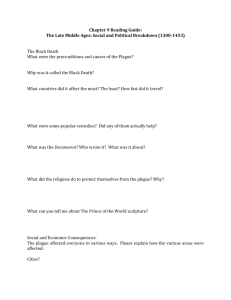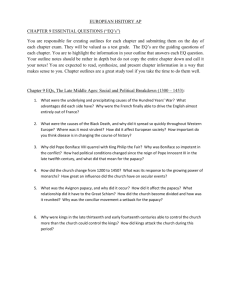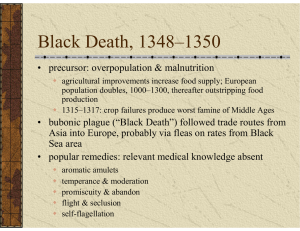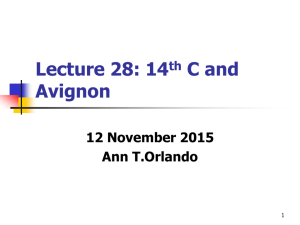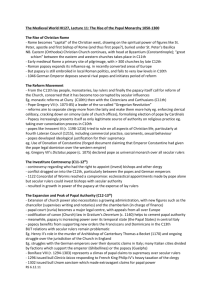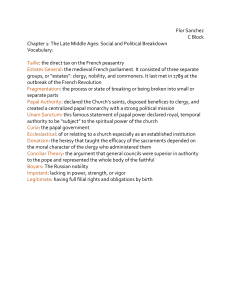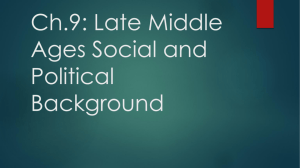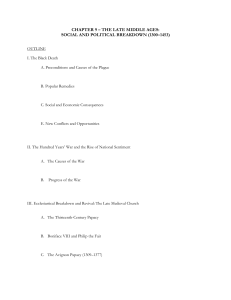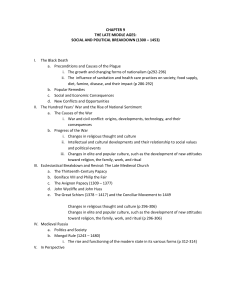Papal attempts to gain power in the Late Middle Ages (Under
advertisement
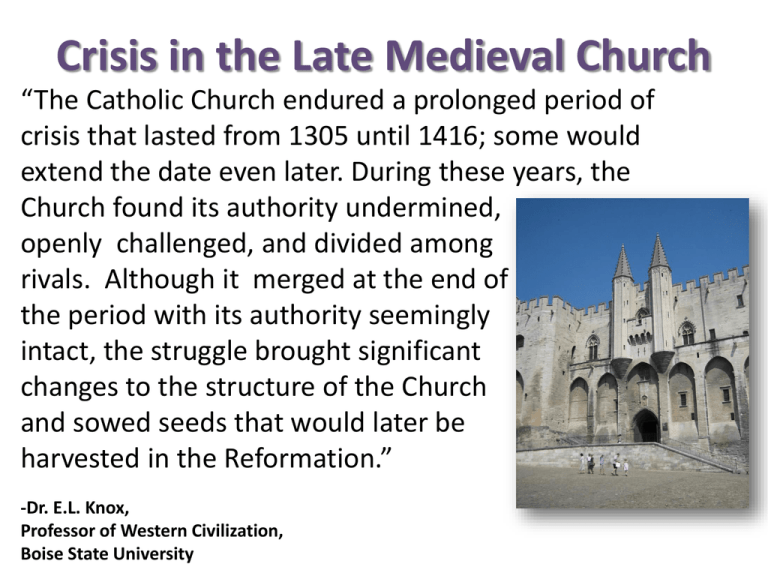
Crisis in the Late Medieval Church “The Catholic Church endured a prolonged period of crisis that lasted from 1305 until 1416; some would extend the date even later. During these years, the Church found its authority undermined, openly challenged, and divided among rivals. Although it merged at the end of the period with its authority seemingly intact, the struggle brought significant changes to the structure of the Church and sowed seeds that would later be harvested in the Reformation.” -Dr. E.L. Knox, Professor of Western Civilization, Boise State University Papal attempts to gain power in the Late Middle Ages (Under Innocent III, Urban IV, Gregory X, and Boniface VIII): • Papal plentitude of power—allowed to name saints, dispose church pfficials, centralized papal monarchy • Rota Romana—its own law court • Sequestering of cardinals at the death of a pope • Clericis laicos—forbade taxation of the clergy by secular monarchs without prior papal consent (Fr. and Eng. respond) • Unam Sanctam—bull stating that temporal power was subject to spiritual power Philip the Fair (of France) responded to many of these threats to his kingly power, eventually resulting in Boniface VIII’s death, the removal of the papacy from Rome, and an end (mostly) to papal threats to secular power. The Avignon Papacy, Great Schism and Conciliar Movement • Avignon Papacy / “Babylonian Captivity” (1309-1377) – Pope Clement V moves papal court to Avignon to escape strife of Rome – To get needed revenue, papal taxes go up, and sale of indulgences begins (and the doctrine of purgatory developed as well) • Lead to the Great Schism (1378-1417)—pope in Rome (Urban VI) and pope in Avignon (Clement VII); mutual excommunication! – Europe was divided between the 2 popes, attempts to resolve the problem were unsuccessful until… • Conciliar Theory: idea that a representative council could regulate actions of pope. – Numerous council held, pope problem solved (after some conflict…i.e. a time with 3 popes!) • Consequences of Church crisis: centralization, anticlericalism, conciliar theory & writings, loss of spiritual leadership in the papacy. Accurate up to 1409 (Council of Pisa and election of Alexander V)
